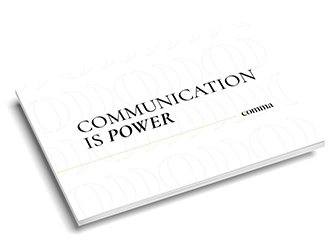“A mediocre idea that generates enthusiasm will go further than a great idea that inspire no one” – Mary Kay Ash, founder of Mary Kay Cosmetics, Inc.
A job will always be a job, it will always have positive aspects and negative aspects. If you are reading this and are doubting whether to put your heart and soul into your job, perhaps you may be able to find some inspiration in the reflections of many well-known entrepreneurs, who have dedicated themselves to their passion and their work. Check out these great quotes.
However, to be happy with what one has in one´s life is something very personal and complex and I do not even dare step foot into that garden. But if there is a garden, which we not only known very well at Silvia Albert in company but also we water with care, we trim it with care and caution down to the very last detail, it is the garden of communication.
There are people, who are incapable of showing passion for what they do because they simply do not believe in it. But there are many others, who do believe in their work but do not know how to convey it or give it value in front of others. Sometimes it is because they are shy, sometimes due to a specific reason (fatigue, jet lag…), others because of diffidence. Whatever it is, the inability to convey a message in an appropriate way means that that message gets lost. Moreover, it can detract from a person´s credibility and overshadow their work.
Let us consider for example, a scenario where a journalist is about to do an interview with a senior executive, who is an expert on an exciting but complex topic. If that expert spends his or her time hesitating, if he or she has a monotonous tone of voice, if he or she maintains a distant or defensive attitude, if they seem bored or tired or if they are unable to look the journalist in the eye, what is the journalist going to think? What are they going to take away from that conversation?
There is no foolproof trick to successfully communicate passion for our work and make sure the listener understands our message. But there are some healthy habits that can be cultivated so as to avoid distractions and ty to successfully convey the message.
Empathise with the listener and attend to their doubts and needs. The listener is just like us: a person with interests, doubts and a view of the world. No matter what kind of person your listener is, it always helps to put oneself in someone else´s shoes for a minute and put aside one´s own preconceptions.
Above all, seek to be natural. As we previously discussed in a post about how to speak in public, the speech ought to connect with the speaker´s personality. Moreover, the speaker has to give the speech in their own way: if you are not the most enthusiastic person in the world, there is no reason to excessively force it.
Eliminate the ‘physiological’ factor as much as possible. As it is, when it comes to an interview, a meeting or a conference, if we do not have the basic needs covered, we are probably not giving it our best. So, if you can avoid it, try to not to speak in public or give interviews when you are tired, hungry or in need of something…
Prepare your key messages beforehand and make sure they are clear and appealing. This point may not directly have to do with passion and being able to capture the audience´s attention. Time is money, especially in a work context and it is necessary to get to the point, explain it clearly and try to turn it into an interesting and useful speech.
Do not lose sight of our role as experts. That is to say, believe it a little. I am not saying act haughty or pretentious but be aware that it is likely that we will know the answer to the majority of the questions we raise. Moreover, it is always possible to decline to answer an uncomfortable question or let the person(s) before us know that we do not have the specific data and will have to provide them with it at a later time.
Remember what makes your job special. Like with a relationship, the daily wear and tear and routine can make you forget that you truly do feel passionate about your work. Keep in mind what is special about your job, what is its differentiating factor and what are the reasons that make you believe that the project or the company you work for will be successful.





